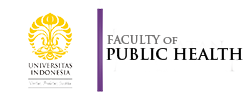Analisa Faktor Psikosial Terhadap Gejala Distress Pada Karyawan Perusahaan Geothermal PT. X
Abstract
Keywords
References
Åkerstedt, T. et al. (2015) ‘Work and sleep-A prospective study of psychosocial work factors, physical work factors, and work scheduling’, Sleep, 38(7), pp. 1129–1136. doi: 10.5665/sleep.4828.
American Psychological Association (no date) Anger – APA Dictionary of Psychology. Available at: https://dictionary.apa.org/anger (Accessed: 17 July 2021).
Amponsah-Tawiah, K. et al. (2014) ‘The impact of physical and psychosocial risks on employee well-being and quality of life: The case of the mining industry in Ghana’, Safety Science, 65, pp. 28–35. doi: 10.1016/j.ssci.2013.12.002.
Bodner, T. et al. (2014) ‘Safety, health, and well-being of municipal utility and construction workers’, Journal of Occupational and Environmental Medicine, 56(7), pp. 771–778. doi: 10.1097/JOM.0000000000000178.
Boyar, S. L. et al. (2008) ‘The impact of work/family demand on work-family conflict’, Journal of Managerial Psychology, 23(3), pp. 215–235. doi: 10.1108/02683940810861356.
Burman, R. and Goswami, T. G. (2018) ‘A Systematic Literature Review of Work Stress’, International Journal of Management Studies, V(3(9)), p. 112. doi: 10.18843/ijms/v5i3(9)/15.
Carver, C. (2013) Coping : Encyclopedia of Behavioral Medicine. 2013th edn. New York, NY: Springer.
Considine, R. et al. (2017) ‘The contribution of individual, social and work characteristics to employee mental health in a coal mining industry population’, PLoS ONE, 12(1), pp. 1–15. doi: 10.1371/journal.pone.0168445.
Cox, T., Griffiths, A. and Rial-González, E. (2000) Research on Work-related Stress, Safety And Health. Luxembourg: Office for Official Publications of the European Communities.
Dhaini, S. R. et al. (2018) ‘Work schedule flexibility is associated with emotional exhaustion among registered nurses in Swiss hospitals: A cross-sectional study’, International Journal of Nursing Studies, 82, pp. 99–105. doi: 10.1016/j.ijnurstu.2018.03.019.
Eatough, E. M. and Chang, C.-H. (2018) ‘Effective coping with supervisor conflict depends on control: Implications for work strains’, Journal of occupational health psychology, 23(4), pp. 537–552.
EU-OSHA (2014) Calculating the cost of work-related stress and psychosocial risks, Www.Healthy-Workplaces.Eu. doi: 10.2802/20493.
European Commission (2002) ‘Guidance on work-related stress. Spice of life or kiss of death?: Executive summary’. doi: 10.4135/9781412953993.n184.
Eurostat (2017) Self-reported work-related health problems and risk factors - key statistics - Statistics Explained. Available at: https://ec.europa.eu/eurostat/statisticsexplained/index.php/Selfreported_workrelated_health_problems_and_risk_factors_-_key_statistics (Accessed: 24 June 2020).
Gass, J. J. and Glaros, A. G. (2013) ‘Autonomic dysregulation in headache patients’, Applied Psychophysiology Biofeedback, 38(4), pp. 257–263. doi: 10.1007/s10484-013-9231-8.
Greenhaus, J. H. and Beutell, N. J. (1985) ‘Sources of Conflict Between Work
and Family Roles’, Academy of Management review, 10(1), pp. 76–88. Available at: http://amr.aom.org/content/10/1/76.full.pdf.
Houtman, I. and Jettinghoff, K. (2007) ‘Raising awareness of stress at work in developing countries’, Protecting workers’ health series, pp. 1–51. Available at:
http://scholar.google.com/scholar?hl=en&btnG=Search&q=intitle:Raising+Awareness+of+Stress+at+Work+in+Developing+Countries#1.
ILO (2016) ‘Psychosocial risks, stress and violence’, International Journal of Labour Research, 8(1–2). Available at: https://www.ilo.org/wcmsp5/groups/p
ublic/---ed_dialogue/---actrav/documents/publication/wcms_551796.pdf.
International Labour Organization (2016) Workplace Stress: a collective challenge, Ilo. Available at: https://www.ilo.org/global/topics/safety-and-health-at-work/resourceslibrary/publications/WCMS_466547/lang--en/index.htm%0Ahttp://www.ilo.org/africa/mediacentre/news/WCMS_477712/lang--en/index.htm.
James, C. et al. (2018) ‘Correlates of psychological distress among workers
in the mining industry in remote Australia: Evidence from a multi-site cross-sectional survey’, PLoS ONE, 13(12), pp. 1–17. doi: 10.1371/journal.pone.0209377.
Kementrian Ketenagakerjaan Republik Indonesia (2018) Peraturan Menteri
Ketenagakerjaan Nomor 5 Tahun 2018 tentang Keselamatan dan Kesehatan Kerja Lingkungan Kerja. Indonesia.
McCubbin, J. et al. (2006) ‘Stress and Fatigue in Foreign Language Professionals: Implications for Global Security’, Forum on Public Policy: A Journal of the Oxford Round Table, (January).
Nelson, D. and Cooper, C. (2007) POSITIVE ORGANIZATIONAL BEHAVIOR, ACCENTUATING THE POSTITIVE AT WORK, Sage. Chennai: Sage Publications. Available at: http://dx.doi.org/10.1016/j.leaqua.2011.07.017%0Ahttp://search.ebscohost.com/login.aspx?direct=true&db=edb&AN=60448300&site=edslive&scope=cite.
Neupane, S. et al. (2016) ‘Does physical or psychosocial workload modify the effect of musculoskeletal pain on sickness absence? A prospective study among the Finnish population’, International Archives of Occupational and Environmental Health, 89(5), pp. 719–728. doi: 10.1007/s00420-015-1110-6.
Niedhammer, I. et al. (2015) ‘Classic and emergent psychosocial work factors and mental health’, Occupational Medicine, 65(2), pp. 126–134. doi: 10.1093/occmed/kqu173.
Novaco, R. W. (2016) ‘Anger’, Stress: Concepts, Cognition, Emotion, and Behavior: Handbook of Stress, pp. 285–292. doi: 10.1016/B978-0-12-800951-2.00035-2.
Pamidimukkala, A., Kermanshachi, S. and Nipa, T. J. (2021) ‘Impacts of COVID19 on Health and Safety of Workforce in Construction Industry’, in International Conference on Transportation and Development 2021, pp. 418–430.
Parker, K. N. and Ragsdale, J. M. (2015) ‘Effects of Distress and Eustress on
Changes in Fatigue from Waking to Working’, Applied Psychology: Health and Well-Being, 7(3), pp. 293–315. doi: 10.1111/aphw.12049.
Tiwary, G. et al. (2013) ‘Psychosocial stress of the building construction workers’, Human biology journal, 2(3), pp. 207–222.
Torres, F. (2020) What Are Sleep Disorders?, American Psychiatric Association. Available at: https://www.psychiatry.org/patientsfamilies/sleep-disorders/what-aresleep-disorders (Accessed: 17 July 2021).
Vartia, M. A.-L. (2001) ‘Consequences of workplace bullying with respect to the
well-being of its targets and the observers of bullying’, Scandinavian Journal of Work, Environment & Health, 27(1), pp. 63–69. Available at: http://www.jstor.org/stable/40967116.
Zoer, I. et al. (2011) ‘The associations between psychosocial workload and mental health complaints in different age groups’, Ergonomics, 54(10), pp. 943–952. doi:10.1080/00140139.2011.606920.
DOI: 10.59230/njohs.v2i2.5287
Refbacks
- There are currently no refbacks.







.png)
